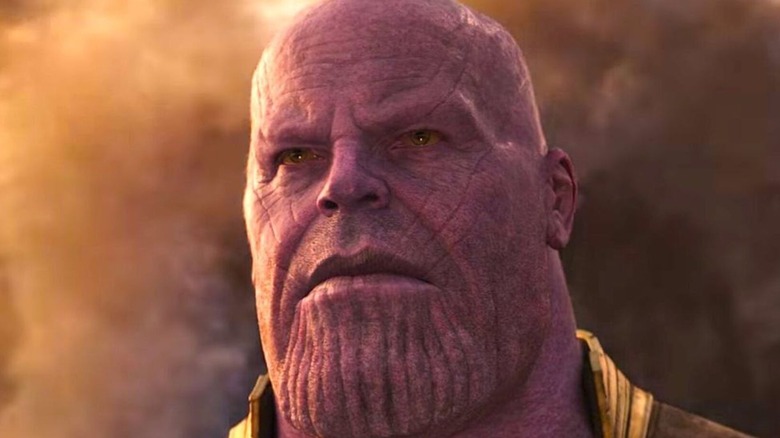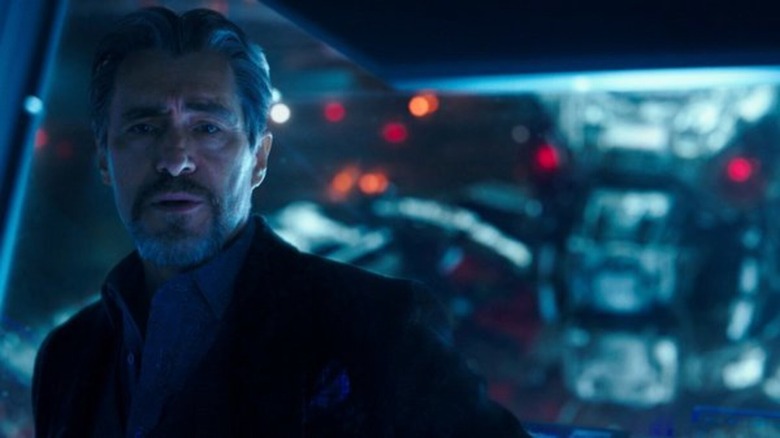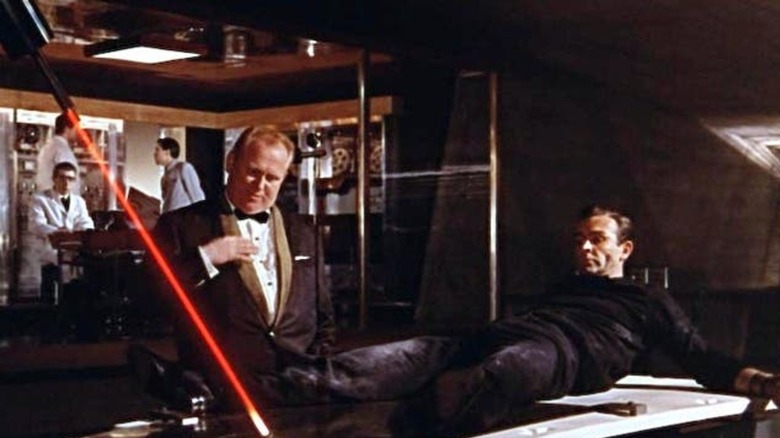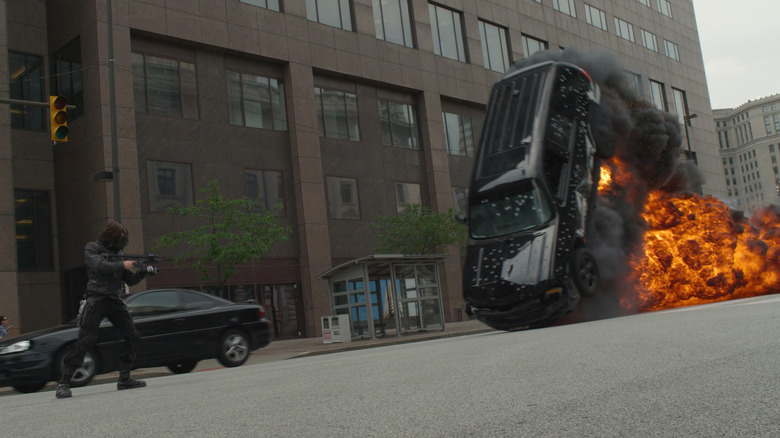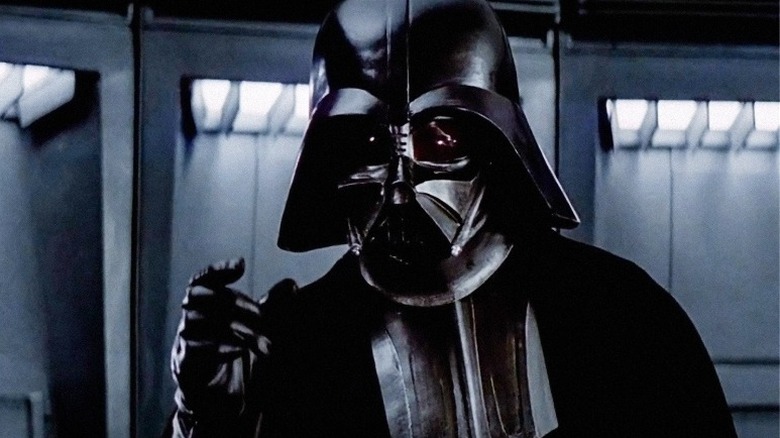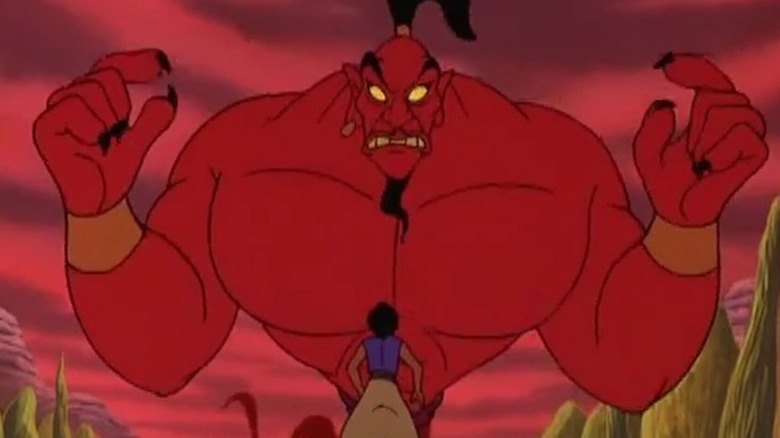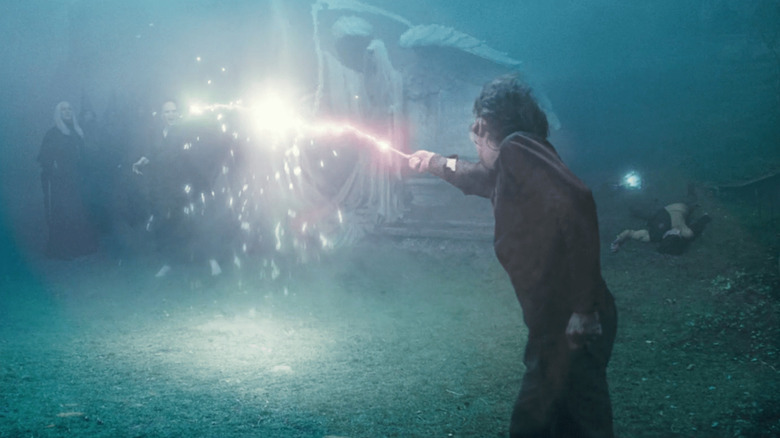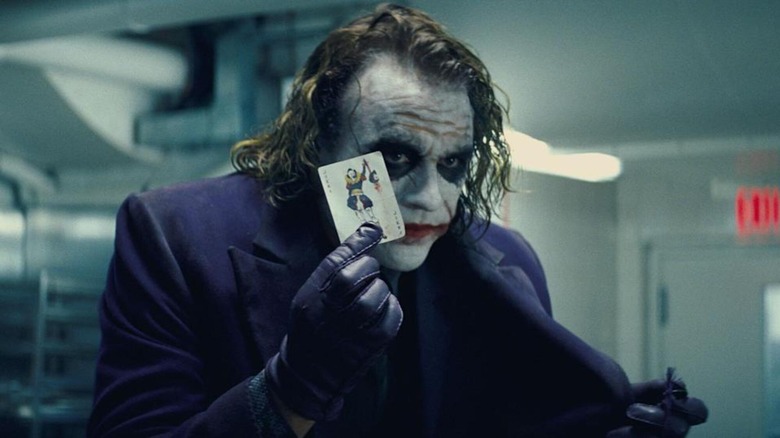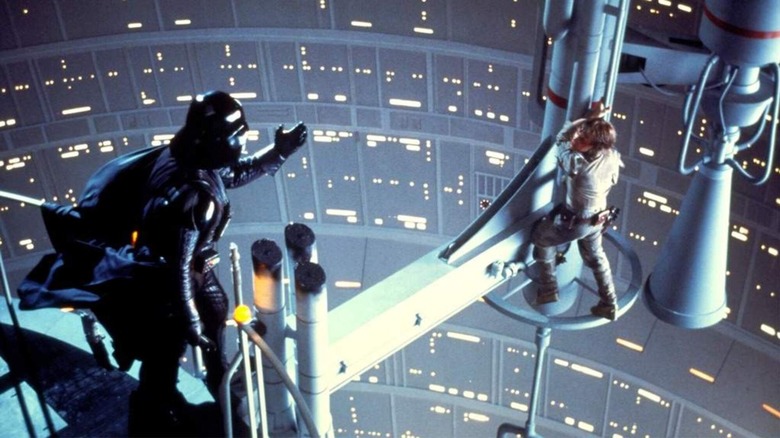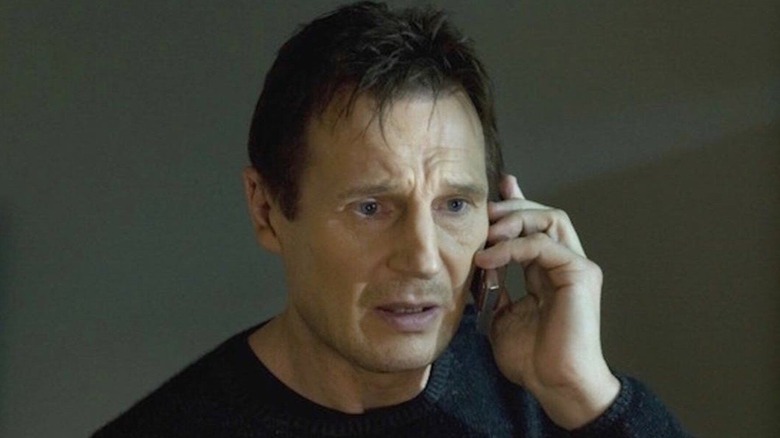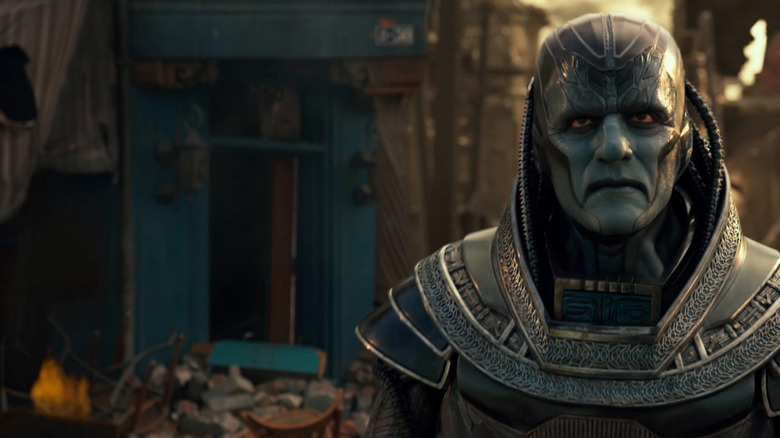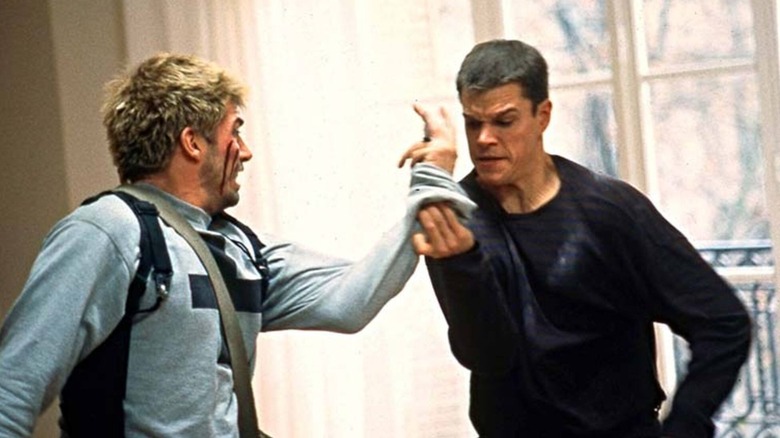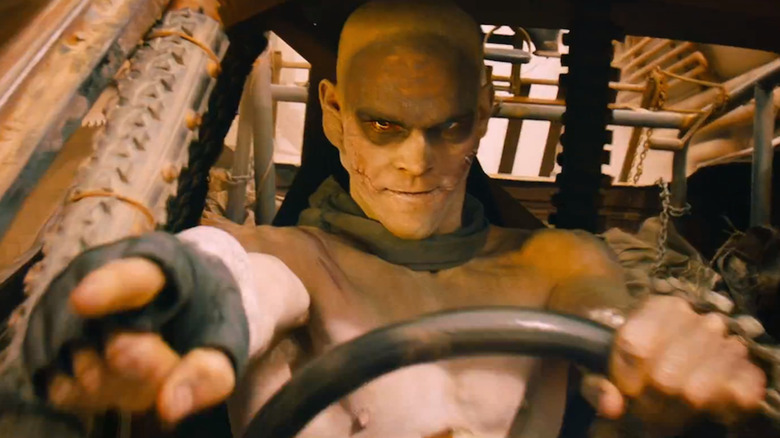Biggest Mistakes Most Movie Villains Make
What would a movie be without a good villain? Just as the protagonist is intended to make the audience cheer as they embark on a quest, a good antagonist makes you root against them as they set up one obstacle after another.
Every genre of films has its own type of antagonist. Their goals can range from kicking a family out of their home to plotting world domination. Whatever their goals, it is important that writers (and the director and actor) make the villain feel like a real, three-dimensional character with believable motivations and actions.
Of course, it is also the fate of the typical movie villain to ultimately fail. The general audience is addicted to happy endings, and they want to see the hero/heroine overcome every obstacle and defeat the villain to win the day. Over the years, we have seen villains lose out to the protagonist for a number of reasons. Oftentimes, they lose more due to their own fault than because the protagonist was more powerful or clever.
In the end, it sure seems like these folks could learn from the mistakes of their peers. With that in mind – attention all movie villains! — here are 14 misguided decisions you folks invariably make that come back to bite you every time.
Giving a big speech at the wrong time
It's the end of the line. The hero/heroine is finally in the villain's clutches. Victory seems imminent. And it is in that moment that the villain can no longer keep their thoughts to themselves. In a lengthy monologue, the villain takes the time to spell out the entire evil plan.
It is that monologue moment, quite often, which proves to be the villain's undoing. Like in "The Good, the Bad and the Ugly," where a vengeful attacker corners Tuco (the "Ugly" one) and starts ranting about having spent weeks tracking him. This gives Tuco enough time to shoot the attacker and remark, "When you have to shoot .... shoot, don't talk!" In "Godzilla vs. Kong," evil CEO Walter Simmons (Demián Bichir) was too busy ranting about his plans to notice Mechagodzilla sneaking up behind him to gobble him up. You know you're monologuing way too hard when you don't even notice a giant mechanical monstrosity right behind you.
In general, it would be a good idea for a movie villain to just quietly go about their work until they actually achieve success in their plans, and to save the monologuing for their autobiography. Sure, it can be tiresome to come up with a clever plan and not be able to tell anyone. But just remember that evil scheming is a marathon, not a sprint, and you shouldn't try to hurry your way across the finish line.
Not killing the hero because reasons
The hero and villain are finally face-to-face. But the hero is not aware of that fact. Or they might be helpless against the villain. Despite having the option to end the hero's life then and there, the villain chooses to let them go because "they have other plans" [*evil chuckle*].
Blockbuster movies do this quite often, because they want to squeeze as much drama out of the hero-villain confrontation as possible, and that often requires more than one run-in between them. "The Dark Knight Rises" has one of the weirdest examples of this. After breaking Batman's (Christian Bale) back, Bane (Tom Hardy) flies his enemy to a distant prison. Bane's aim? To have Batman watch Gotham burn to ashes on a TV before killing him.
But ... why? Bane's already beaten Batman. All the prison does is give Batman a chance to recover and come back to Gotham to stop Bane. For all the artistry and pretense of the Nolan trilogy, how is this any different than every episode of the '60s "Batman" TV show when a villain would tie Batman and Robin to an elaborate death device, then walk out of the room under the assumption they'll never escape?
"Sherlock Holmes: A Game of Shadows" had a similar scene where Professor Moriarty (Jared Harris) met and mildly threatened Sherlock Holmes (Robert Downey Jr.) in private at the start of the film instead of, you know, killing him on the spot. Evil dudes, make up your minds. You can't be both "criminal masterminds" and also gentlemanly men of honor willing to give your adversaries a fair warning/a way to survive for no reason at all.
Telling the world their entire plan
We've already spoken about the bad villain habit of monologuing in front of the hero long enough for them to turn the tables. But oftentimes, the villains don't even wait for the hero to be captured before they start explaining their plan to anyone who would listen.
One of the classic ways this occurs is when the villain is unaware their boasting is being secretly recorded. "Now You See Me 2" has a great example of this trope, where The Horsemen get the villains to confess their crimes, broadcasting the recording to a giant screen on Tower Bridge and streamed live around the world.
Sometimes you don't even need a recording, if the villain can be egged into revealing their intentions in front of a crowd. This is what happens to Chris Evans' character in "Knives Out," who might have gotten away with his crimes if he had not been goaded into trying to kill Marta (Ana de Armas). There are so many movies where the villain could have won if they had simply managed to keep their emotions in check and not blabbed about their plans and feelings like they're talking to their therapist.
Assuming the hero is already dead
One of the most brilliant spoofs of "James Bond" movies occurs in "Austin Powers: International Man of Mystery," when criminal mastermind Dr. Evil (Mike Myers) sends the protagonists to their deaths but doesn't actually make sure they're dead. When questioned by his son about the logic of that action, Dr. Evil responds, "I'm going to leave them alone and not actually witness them dying, I'm just gonna assume it all went to plan. What?"
The dialogue sounds absurd because it is meant to be, but it also points out how many movies rely on this silly trope. Assuming the hero is dying, without watching the event, allows for the hero to plot an escape in private and surprise the villain and his henchmen with an appearance in the final act of the movie.
It's as if when villains have the hero in their clutches, they immediately stop viewing the hero as any sort of a threat. Or the villain has way too much misplaced confidence in the arrangements they made for the hero's death. Bad guys, next time you send a person to their doom, how about sticking around long enough to ensure their doom has actually been met?
Overly complicated plans
How many times has a villain lost because their plans were too complicated? In "Captain America: The Winter Soldier," HYDRA wants to kill Nick Fury (Samuel L. Jackson). The plan to do so involves a team of fake policemen chasing Fury down a busy road, smashing his car with a battering ram. How much simpler would it have been to send the Winter Soldier after Fury right from the start?
The Winter Soldier could have used his gun that shoots literal bombs to blow up Fury's car in seconds instead of the protracted car chase. But the prize for the most needlessly complicated plans go to "James Bond" villains. Instead of shooting the master spy in the face when they have him in his grasp, Bond villains always come up with unnecessarily long execution methods, from tying him to a table in front of a laser to leaving him alone in the middle of an alligator farm.
Many villains also show the same fondness for messy complexities when plotting their grand evil scheme. Especially Batman's enemies. In "The Dark Knight," the Joker has to keep track of so many moving variables in his plans that largely depend on blind luck it's a miracle he ever managed to commit any crimes at all. Simplify, guys. Simplify. We know you're smart, you don't need to keep trying to prove it.
Killing their own henchmen
Movie villains often show reluctance in killing the heroes before the third act of the story. But they have no such compunctions about murdering or mistreating their own henchmen. Seriously, how many times has a James Bond villain, or Darth Vader, or Lord Voldemort killed one of the nameless mooks working for them because they failed in their missions?
Within the story narrative, the sight of a villain killing their own is meant to show the audience that the villain needs to be taken seriously as a threat. This is a dude who would not hesitate to take the life of someone who works for him, so what chance does the hero have against someone so ruthless?
But this method of showing the villain's evil nature has become so overused that you have to wonder why any hench person would ever even want to work for someone who cares so little for their lives? It would make a lot more sense to become a waiter than a hench person. Sure, the pay would be less, but at least you won't be in constant danger of losing your life because your boss woke up cranky and is looking for an underling to vent their frustration on.
Getting greedy for more power
Greed has to be the foremost defining quality of a movie villain. No matter how much of a good thing a villain gets, they always want more. Even with imminent victory achieved, they decide to risk everything once again like a desperate gambler in Las Vegas. It is this style of thinking that allows the hero to trick the villain into losing.
In "Aladdin," the evil sorcerer Jafar is able to procure the magic lamp, and in doing so becomes the most powerful sorcerer in all the land. But then Aladdin reminds Jafar that no matter how much power he has, Jafar will always be second to the Genie in might. This goads Jafar into demanding the Genie transfer all his powers to him. But along with all the extra power, Jafar is also bound by the Genie's code, and he is forced to live inside the lamp as the new Genie.
In essence, movie villains are like that one kid in the restaurant who always wants extra helpings of dessert, even though their parents keep warning them, and they inevitably get a bellyache. All that is left in the end is for the hero to smugly explain to the fallen villain how greed became their downfall.
Underestimating the hero
Audiences love a hero who is an underdog, but who still manages to win against the odds. The most common way to show this side of the hero's journey is to keep making the villain and his henchmen underestimate the hero, despite clear signs that the dude offers a real threat that deserves to be taken seriously.
In "Harry Potter and the Goblet of Fire," after Lord Voldemort finally manages to return to his full might, he has the chance to kill Harry right then and there. Instead, Voldemort hands Harry's wand back to him, and forces the young hero to duel him. Even then, Voldemort only plays with Harry, until The Boy Who Lived gets the chance to retrieve a portkey and make his escape.
Superhero movies are also filled with examples of villains letting the heroes or their sidekicks go because they are not seen as "real" threats. Look, evil dudes, there's confidence, and then there is overconfidence. One is good, but the other is bad. If your opponent is called "The Boy Who Lived" or "The Chosen One" or has literal superpowers, eliminate them as quickly as you can and then get on with the rest of your plan for world domination.
Leaving a calling card
It's not just the hero that villains love to underestimate, but the police as well. That is why you will see so many villains like the Joker and the Riddler leaving their own specialized calling cards at the scenes of their crimes, as if to announce to the world through a loudspeaker, "THIS IS MY CRIME. I MADE THIS CRIME. ME, THE JOKER. DO YOU LOVE ME NOW DAD?"
Any real world criminal will tell you the key to a successful crime is secrecy and stealth. But movie villains love the idea of taking credit for their work. So, many of them have been caught as a result of this egotistical approach to committing felonies — most famously perhaps, the Wet Bandits.
But to be fair to the criminals, the police are almost never able to track them down despite being aware of their calling cards, their method of committing crimes, and the general area in which the villain operates. It is then left up to the hero to make some perfectly obvious deductions to pin down the villain's true identity and secret lair in time for the third act of the movie.
Trying to lure the hero to the Dark Side
The stage is set for the big showdown between the hero and the villain. The audience is expecting an epic match. The hero is steeling themselves for a vicious assault. But then instead of going in for the kill, the villain makes an offer to the hero to join forces so they can rule together.
Darth Vader did it with Luke. Voldemort did it with Harry Potter. Practically every superhero has been propositioned by their arch-enemy in this manner at least once. And it. Never. Works.
The hero never goes like, "Oh yeah, that is a pretty amazing offer. Count me in!" The villain has to know the hero will never come over to the dark side. But the idea of them working together is apparently just too juicy to resist, and the villain finds themselves making the offer anyway.
The Joker is probably the worst offender in this regard. He could be the most successful criminal in history if he wasn't so completely wrapped up in wanting to bring Batman down to his level by breaking his spirit. It never works, but Joker never stops trying to turn Batman evil. Take the hint, bad guys. The good guys are just not that into you or what you're selling. Focus on winning, and afterwards there will be plenty of time for grooming, interviewing and vetting a proper protege.
Making things too personal
The fight between a hero and a villain can start out all business. The villain is trying to commit a crime, and the hero is trying to stop them. Completely professional. No personal feelings involved. But that is when the villain ups the ante by threatening the hero's loved ones.
Spider-Man is probably the hero who suffers the most in this regard. All his enemies, from Green Goblin to Doctor Octopus to Venom seem to make a beeline straight for Aunt May or Mary Jane. There is an entire sub-genre of action movies where the hero is trying to retrieve his or her loved ones from the enemy's lair, and dismantling the villain's entire operation while doing so.
Imagine how quickly "Taken" would have ended if the main villain had simply said, "Sorry we kidnapped your daughter. We're sending her back to America on the first flight." Instead, villains double down on their transgressions, leaving the hero no choice but to unleash an unholy amount of butt-kicking.
Forgetting their powers
In a bid to make movie villains more threatening, writers often go too far. This results in certain villains who are so ridiculously overpowered that the only way to make them lose is to have them forget their own powers. Unsurprisingly, this is something that happens in superhero movies a whole lot.
In "Avengers: Infinity War," we see Thanos use the reality stone to instantly neutralize the Guardians of the Galaxy. Later on, Thanos has trouble fighting Iron Man and his team on planet Titan even though he could have blinked them out of existence in an instant. In "X-Men: Apocalypse," we see the main villain turn his enemies to dust in the beginning with a wave of his hand, yet he forgets to do the same at the end of the movie when the mutant super team attacks him.
This is an issue that plagues any movie more interested in cool action scenes than logic. A villain's full might is only applicable in the beginning of the movie. As the plot nears the third act climax, and the hero becomes steadily more encased in plot armor, the villain finds his vast powers and resources no longer apply as he becomes the hero's punching bag.
Sending henchmen after the hero one by one
Matt Damon's secret agent alter ego Jason Bourne is one of the coolest movie characters of all time. But you have to admit, a lot of his victories are largely down to the fact that the government insists on sending one agent after him at a time, instead of all of them together.
Seriously, why are so many movie villains content with sending one emissary at a time after the heroes, even when it has been made painfully clear that the henchmen are not up to the task? Wouldn't it make much more sense to rush the hero together? Across the 20+ movies in the MCU, we saw Thanos send one evil minion after another to Earth against the Avengers. None of the minions succeeded, but when Thanos himself came into the picture, he was able to personally lay waste to the Avengers in the span of a single movie.
What this means is that if you are a movie villain whose hench people get their butts handed to them repeatedly, either send all your forces against the hero at once, or go in there personally to get the job done. Your hench people will thank you, and you'll be much closer to fulfilling your big plan.
Dying for the heck of it
The past two decades have seen the rise of a new sort of movie villain. The kind who is cheerfully willing to accept death for the sake of a larger goal — even if that goal is really dumb. For instance, the Joker is perfectly willing to die, as long as it turns Batman into a murderer.
But the Joker is meant to be insane, so it works.
That sort of thinking makes a lot less sense for someone like Moriarty, an alleged mastermind, who shoots himself just to mess with Sherlock. The War Boys in "Mad Max: Fury Road" are similarly so eager to embrace death that they throw themselves into suicidal missions because they think dying will take them to Valhalla.
What makes fighting such characters so easy is that they off themselves. But it's not so satisfying for the audience, who are left wondering if the hero even needed to bother defeating the villain, or if the latter would have willingly wandered on to an open minefield if left to their own devices.
